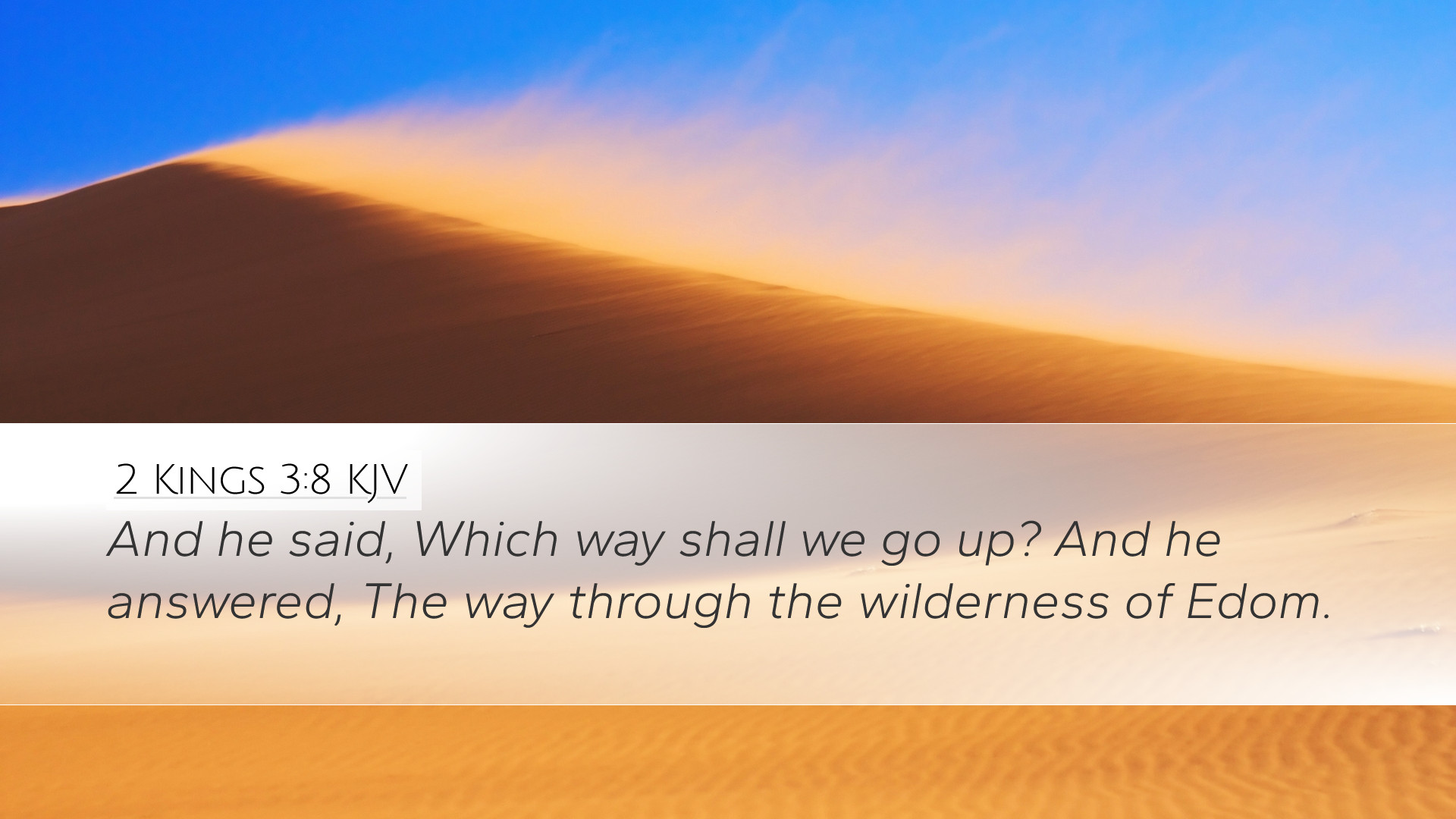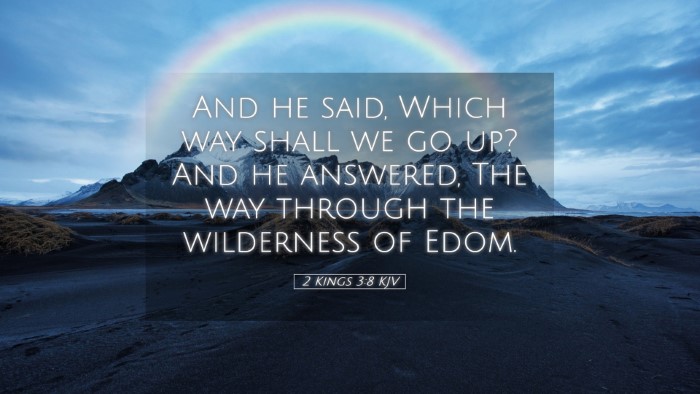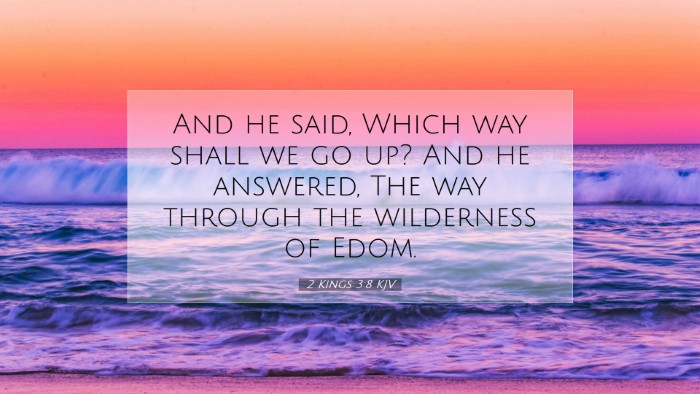Commentary on 2 Kings 3:8
Verse Context: 2 Kings 3:8 states:
"And he said, Which way shall we go up? And he answered, The way through the wilderness of Edom."
Introduction
This verse occurs in a narrative involving the kings of Israel, Judah, and Edom as they unite to fight against Moab. The strategic choice of route to engage an enemy in battle is a significant point in this text, reflecting the importance of divine guidance in military endeavors as well as the geopolitical realities of the time.
Insights from Various Commentaries
Matthew Henry's Commentary
Matthew Henry emphasizes the importance of seeking divine guidance in decision-making. In this particular context, the consultation regarding the route represents the critical nature of leadership:
- Divine Guidance: Henry asserts that the inquiry of the kings illustrates a need for divine direction. The wilderness represents a barren, harsh path, perhaps symbolizing the trials faced when following God’s direction.
- Military Strategy: The choice to take the indirect route through Edom highlights a strategic maneuver. Henry suggests that sometimes the less conventional paths may be wiser, especially when they align with God's will.
- Coalition of Kings: The collaboration between Jehoram (Israel), Jehoshaphat (Judah), and the king of Edom signifies the unity that may be required to combat common foes, which can also serve as a metaphor for Christian unity against spiritual adversaries.
Albert Barnes' Notes
Albert Barnes provides insight into the geopolitical context of this verse:
- Wilderness of Edom: Barnes points out that the route taken through Edom was a challenging choice, illustrating the difficulty and dangers that accompany such a journey. He notes the terrain and conditions of the wilderness, which serve as a metaphor for the struggles believers face in their spiritual journeys.
- Leadership and Decision-making: Barnes emphasizes the importance of wise counsel when making decisions, particularly in contexts involving conflict and cooperation. The query, "Which way shall we go?" reflects an understanding of the necessity of seeking advice from others, especially those grounded in faith.
- Theological Implications: His commentary indicates that there is a divine providence at work, suggesting that even in military matters, God’s sovereignty is present. Every journey undertaken, especially when facing adversaries, should be guided by prayer and reliance on God.
Adam Clarke's Commentary
Adam Clarke offers a more critical and detailed analysis of the geopolitical implications:
- Route Implications: Clarke explains that the choice of a less direct route could be seen as a necessity born of avoiding confrontation with Moab until properly prepared. The wilderness symbolizes trials and preparation that are often involved in any significant endeavor.
- Moral Lessons: Clarke draws moral lessons about the necessity of preparation and the importance of consulting with God before embarking on significant undertakings. He points out that the decision to consult and require a favorable path reflects an awareness of vulnerabilities.
- Faith and Fear: The narrative illustrates a balance between faith and the natural fears associated with battles. Kings in their preparation exhibited both realism about their situation and faith in their military efforts.
Theological Themes
The commentary on this verse opens several significant theological themes pertinent to both the ancient audience and contemporary readers:
- Divine Providence: The necessity of recognizing God's guidance in all decisions, particularly those that involve significant risks, is a vital lesson highlighted in this passage.
- Unity in Purpose: The alliance of the three kings serves as a reminder of the strength found in unity among believers, particularly when facing trials together.
- Preparation and Strategy: Just as the kings required a strategic approach to confront Moab, Christians are encouraged to prepare mentally and spiritually for the challenges they face.
Practical Applications
This commentary on 2 Kings 3:8 challenges pastors, students, and theologians to draw lessons for their ministries and personal lives:
- Seeking God's Guidance: In all endeavors, especially in leadership, learning to seek God's input through prayer and wise counsel should be paramount.
- Embrace Struggles: Understanding that the wilderness experience is often a necessary part of preparation for breakthroughs can encourage persistence in faith.
- Fostering Unity: Encouraging unity among church members and leaders in the pursuit of common goals reflects the unity displayed by Jehoram, Jehoshaphat, and the king of Edom.
Conclusion
The inquiry presented in 2 Kings 3:8 urges readers to reflect deeply on the paths they choose in life, emphasizing the essential role of divine guidance in those choices. The historical context, combined with theological implications, lends rich insight into how spiritual leaders can approach their endeavors with God-centered wisdom and unity.


